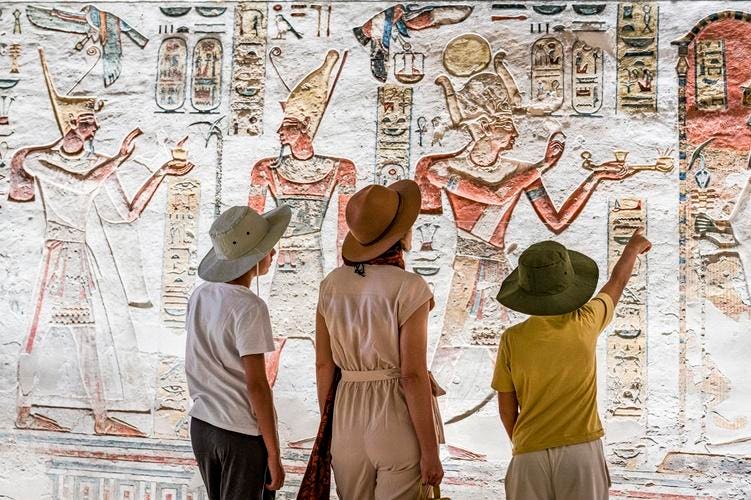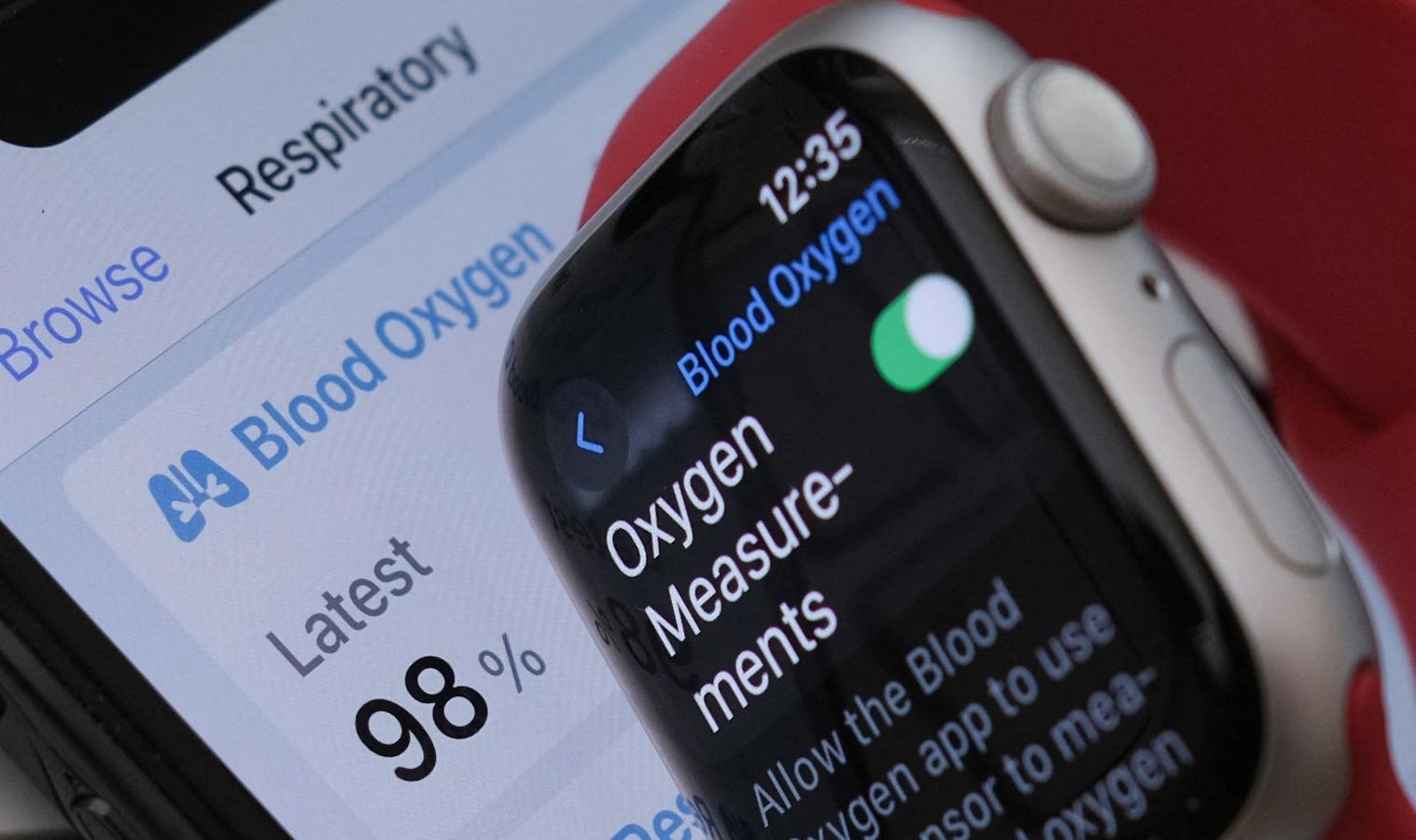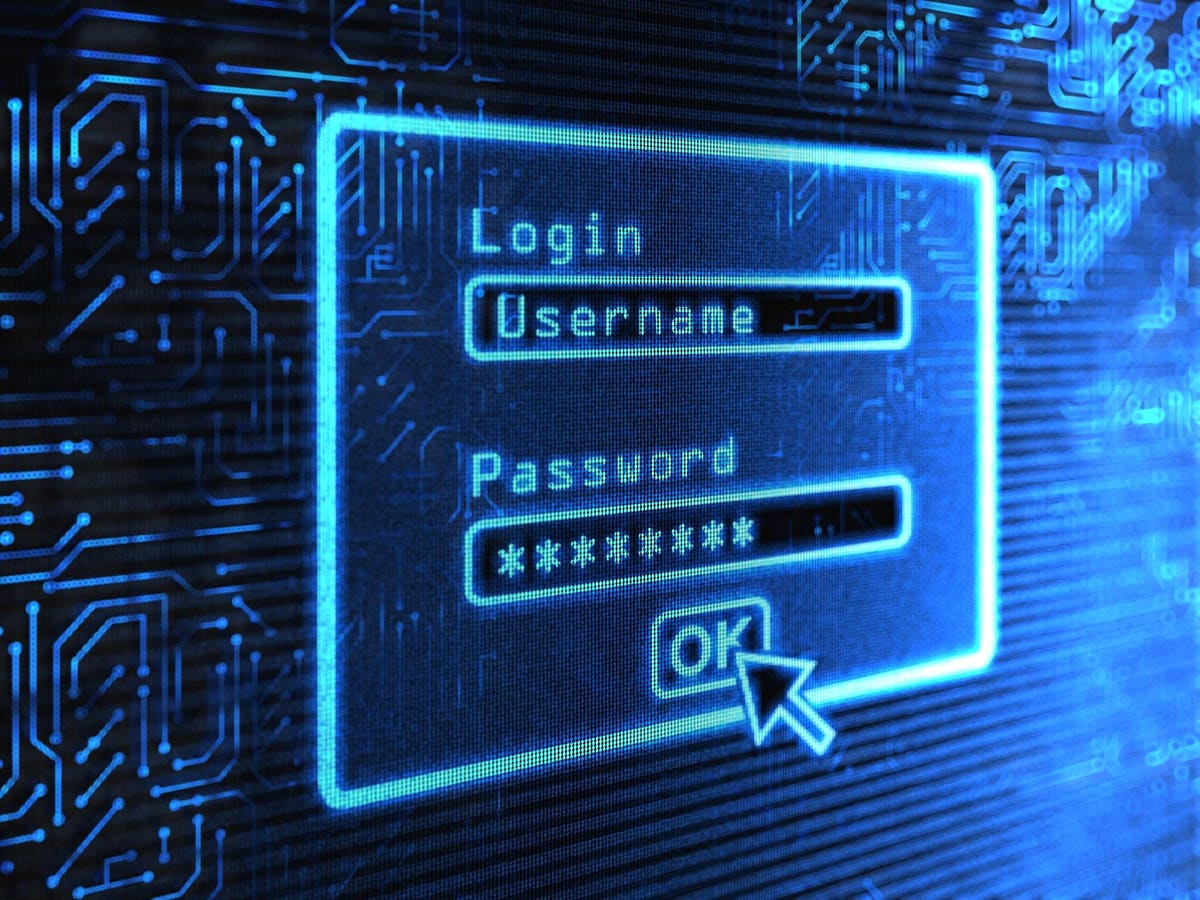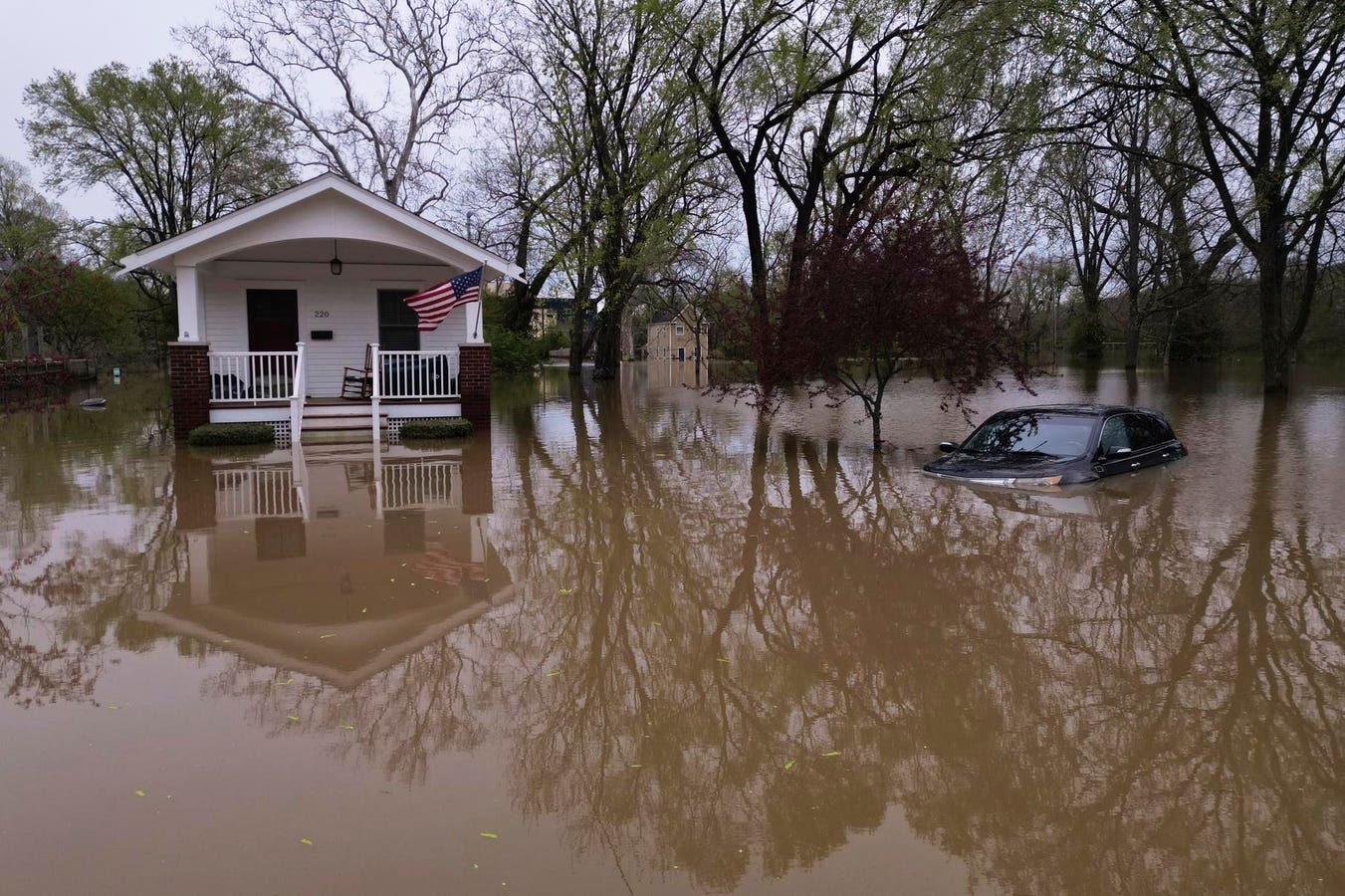Mother and sons looking at the colorful pharaohs reliefs and paintings inside Ramses IX Tomb, Valley of the Kings, Egypt
getty
Amid resounding questions about what AI will do to the future, and that’s usually the top priority for scryers of the new tech explosion, there are also unanswered questions about what it will do to the past. That impact is, in some ways, limited, since the past has already happened. However, it does inform our journey through this strange and sometimes daunting age.
Quite a few experts and those close to the “history industry” believe that AI is likely to result in significant historical distortions. Now, you could point out that this wouldn’t be the first time in human history that media or digital life has distorted history: just watch a classroom of schoolchildren watching the film “Pearl Harbor,” for example, and then interview them about the war.
Still, the technology that brings us deepfakes is uniquely able to distort: this danger is front and center at a post I read at Substack by Jason Steinhauer, where the author opens with a story about a young Pakistani creating “holocaust pictures” with AI, while not being familiar with the actual history in question. Reading this, you start to get a glimpse of how this massive disconnect would work. Rather than building images out of informed reading, the AI user might generate the images to learn the history itself. Since we know AI is subject to hallucinations, that can be tricky.
The ‘Automatic Historian’ is Inscrutable
In a piece at Scienmag, an anonymous author takes aim at the black box problem which has, in some ways, always existed in the artificial intelligence and machine learning world.
“One of the most significant issues surrounding AI’s foray into history is the inherent lack of transparency in its methodologies,” the writer suggests. “Unlike traditional historians, who openly document their research processes and criteria for selection, AI systems often operate as black boxes. The algorithms that underpin these technologies are rarely disclosed in detail, leading to concerns that future historical narratives may be built on questionable foundations. This opacity leads to apprehensions among historians regarding the credibility of AI-generated content.”
Job displacement is an issue, too.
“While Wikipedia and social media have captured worldwide attention, professional history has clung to a rapidly diminishing air space,” writes Steinhauer in his piece, where he points out that the decline of the history profession started with these kinds of internet competition well before AI came on the scene. “As has been well-documented … history departments in the North America and Europe are being shuttered, retiring history professors are not being replaced, fewer history degrees are being awarded, history museums are closing—some due to lack of visitors and donor support, others due to political pressures—funding for historical research is disappearing and full-time job openings for professional historians in universities or museums/historical societies are few-and-far-between, often with paltry salaries.”
Brain Drain in the Humanities
Steinhauer also speaks of an academic exodus, describing the process whereby the historical departments of universities have sadly atrophied of late:
“At the college and university levels, the allure of high-paying S.T.E.M. careers that would justify the high costs of tuition lured students out of the Liberal Arts buildings and into the science and business halls,” Steinhauer writes, noting that not even the high bastions of tech have fully protected human jobs. “Coders and engineers are now facing bleak job prospects—but the students have not returned. With no history students, administrators can justify fewer history professors and no history departments. Why pay salaries plus benefits for professors to teach to empty classrooms? Students can learn the history they need for free from a variety of high-quality YouTube videos or podcasts. … Donors are donating less, some donors have passed away and others are scared to take a stand on matters of history for fear that elected officials will come after them and their bank accounts.”
That’s all dire.
How far will it go?
Ask the Models
When I tried to search for related content on Bing, Microsoft Copilot responded to my stated concerns with something reminiscent of a fortune cookie:
“The question of whether AI will kill history is complex and subjective.”
Then, Copilot went into quite different territory, bringing up links related to the more broadly morbid idea that AI would not just “kill history,” but erase humankind. For example, a Futurism article citing the views of Roman Yampolskiy suggests this scientist calculates something like a 99.9% chance of human extinction due to AI within the next century. No big deal, right?
Perhaps similarly inspired, Steinhauer chronicles his query to Google Gemini.
“(Gemini) produced a lengthy A.I.-generated report that claimed that ‘instead of facing obsolescence, the profession of history is in the midst of a profound and necessary evolution,’” BB writes. “It cited 24 websites, more than half of which were university webpages marketing history classes to their non-existent students, with three additional citations from Wikipedia. It was eerily similar to the A.I.-generated Holocaust images produced in Pakistan; it had the illusion of reality, while simultaneously being completely divorced from it.”
That, then, points to how reliant AI is on our human content – it takes some things profoundly out of context, where the user can see that human sources are tilting the game. But if you extrapolate this out, where LLMs, after all, are self-learning – you can imagine what all of this will be like in a few more years when the models learn to be more subtle. Well keep seeing more complex Turing tests passed by these simulators, until….? Well, what will we know about them?
2025 is coming to a close pretty soon, and I think we would all agree that this has been quite a year for technology. Stay tuned.









